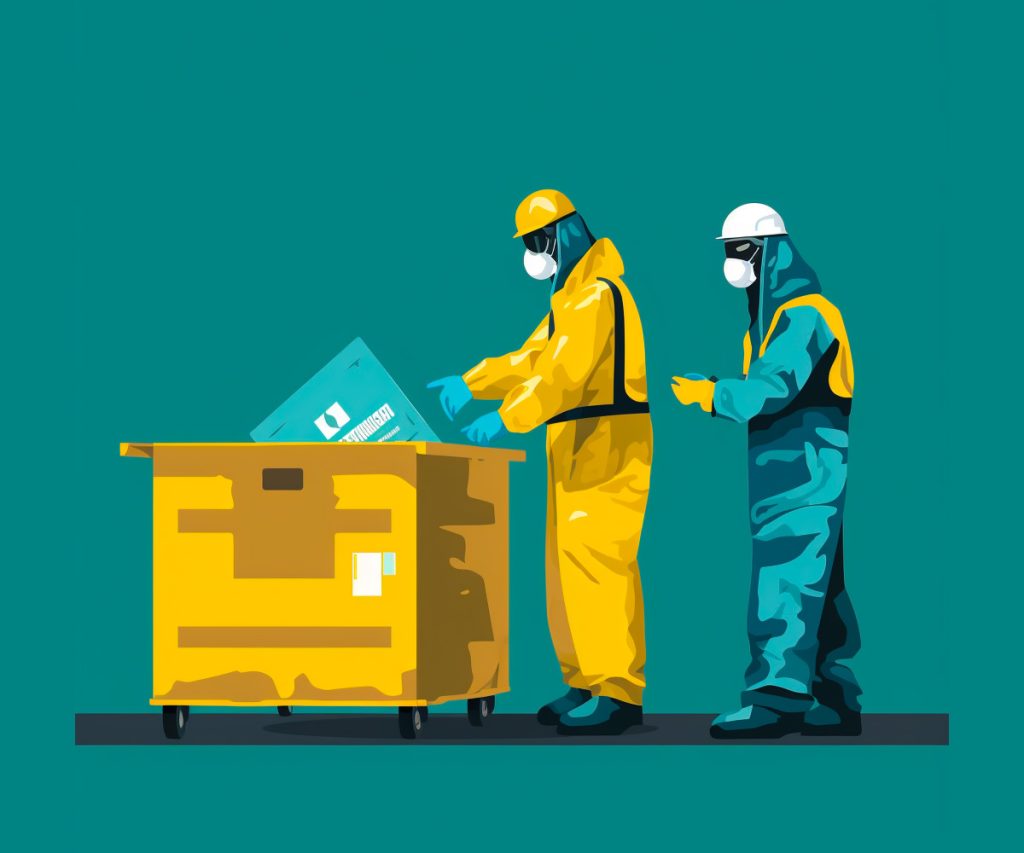Diesel fuel is a commonly used fuel for heavy-duty vehicles and equipment. However, over time, diesel fuel can become old and degraded, making it difficult to use in engines. This raises the question of what to do with old diesel fuel.
One option is to dispose of the fuel properly. Old diesel fuel can be hazardous to the environment if not disposed of correctly. It is important to follow local regulations and guidelines for the disposal of hazardous materials. Additionally, some communities have special hazardous waste disposal facilities that can properly handle old diesel fuel.
Another option is to recycle the old diesel fuel. There are companies that specialize in recycling old diesel fuel, which can help reduce waste and potentially save money. However, it is important to research and choose a reputable company to ensure the fuel is properly recycled.
Understanding Diesel Fuel and Its Storage
Characteristics of Diesel Fuel
Diesel fuel is a type of fuel oil that is commonly used in diesel engines. It is a hydrocarbon-based fuel that is derived from crude oil. Diesel fuel has a higher energy density than gasoline, which makes it more efficient in terms of fuel consumption. It is also less volatile than gasoline, which makes it safer to store and transport.
Ideal Conditions for Storing Diesel
Storing diesel fuel requires specific conditions to ensure its quality is maintained. The ideal conditions for storing diesel fuel include a cool, dry, and dark environment. Diesel fuel should be stored in a tank that is made of a non-reactive material, such as steel or fiberglass. The tank should be kept at least half full to minimize the amount of air in the tank, which can cause oxidation and water contamination.
Potential Issues with Old Diesel Fuel
Old diesel fuel can become contaminated with water and microbial growth, commonly known as the “diesel bug.” This can cause clogging of the fuel filter and damage to the engine. Additionally, old diesel fuel can lose its stability and become prone to oxidation, which can cause the fuel to break down and form deposits.
Preventing Contamination and Degradation
To prevent contamination and degradation of diesel fuel, it is important to use proper storage techniques. This includes using additives and biocides to prevent microbial growth, stabilizers to prevent oxidation, and filtration systems like the Racor filter to remove impurities. It is also important to avoid transporting and transferring diesel fuel in a manner that can cause contamination, such as using a pump that is not clean or transferring diesel fuel into drums that are not spill-proof or self-venting.
Transporting and Transferring Diesel Fuel
When transporting and transferring diesel fuel, it is important to follow safety precautions to prevent spills and other accidents. Diesel fuel is a flammable and hazardous material, and spills can be dangerous and costly. It is important to use approved containers and to properly label and handle the containers. It is also important to avoid using siphons or other methods that can cause spills or soaked rags that can cause chemical reactions or spontaneous combustion.
Safety Precautions in Handling Diesel Fuel
In addition to preventing spills and accidents, it is important to take safety precautions when handling diesel fuel. This includes using proper ventilation, wearing protective gear like gloves and goggles, and avoiding smoking or using other ignition sources near the fuel. It is also important to have a plan in place in case of a fire, such as having a fire extinguisher or contacting the local fire hall or National Fire Protection Association for assistance.
Use of Diesel Fuel in Different Industries
Diesel fuel is commonly used in the transportation industry, including in trucks, buses, and farming equipment. It is also used in the construction and manufacturing industries. The fuel efficiency and low fuel consumption of diesel engines make them popular in these industries.
Environmental Impact of Diesel Fuel
Diesel fuel is a commodity that has a significant impact on the environment. Burning diesel fuel produces air pollution, including particulate matter and nitrogen oxides, which can have negative health effects. Additionally, diesel fuel is a non-renewable resource, and its extraction and use can have negative impacts on ecosystems and habitats.
Disposal and Recycling of Old Diesel Fuel
When diesel fuel is no longer needed or has become contaminated, it must be disposed of properly. This can include reconditioning the fuel with biocides and stabilizers or disposing of it as hazardous waste. Proper disposal methods include taking the fuel to a hazardous waste disposal center or recycling center. It is important to avoid disposing of diesel fuel in a landfill or pouring it down the drain, as this can have negative environmental impacts.
This section has covered the characteristics of diesel fuel, ideal conditions for storing diesel, potential issues with old diesel fuel, preventing contamination and degradation, transporting and transferring diesel fuel, safety precautions in handling diesel fuel, use of diesel fuel in different industries, environmental impact of diesel fuel, and disposal and recycling of old diesel fuel.
I’m Cartez Augustus, a content creator based in Houston, Texas. Recently, I’ve been delving into different content marketing niches to achieve significant website growth. I enjoy experimenting with AI, SEO, and PPC. Creating content has been an exciting journey, enabling me to connect with individuals who possess a wealth of knowledge in these fields.


